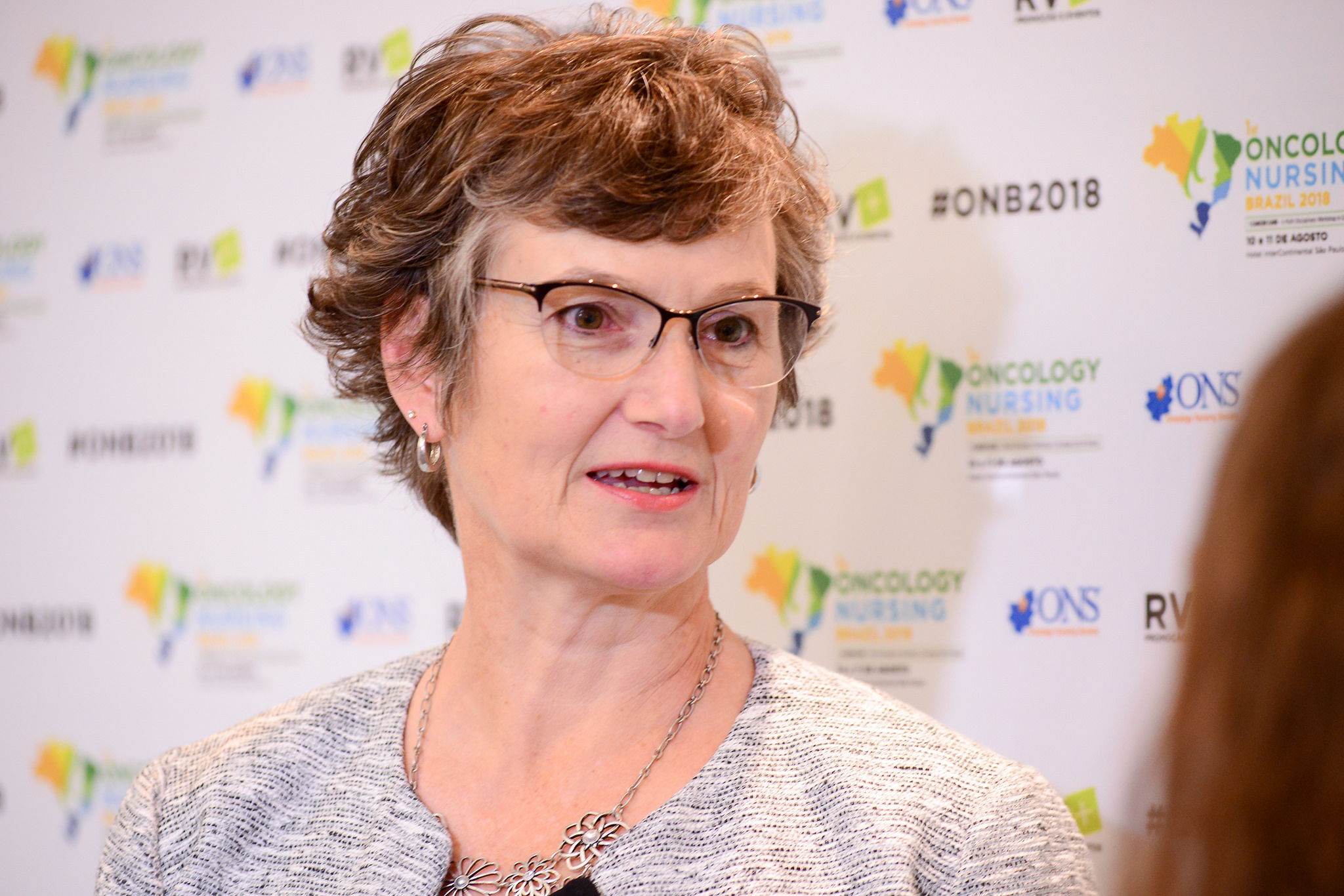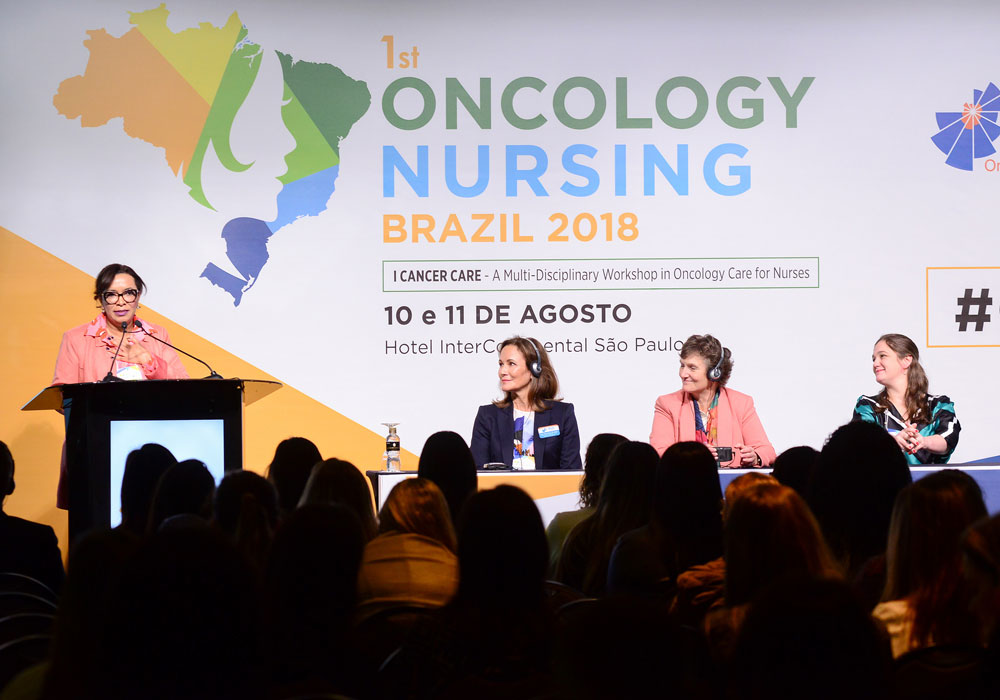By Julie Ponto, PhD, APRN, CNS, AGCNS-BC, AOCNS®

What comes to mind when someone mentions Brazil? Do you think soccer? The 2016 Rio Olympics? Carnival? The Amazon rainforest? Although all of those are true, even more impressive is what’s happening in oncology nursing throughout Brazil. In August 2018, a small group of dedicated Brazilian oncology nurses—many of whom are ONS members—hosted the Inaugural Oncology Nursing Brazil 2018 conference in Sao Paulo.
The conference welcomed more than 850 oncology nurses from all over the country who came together to learn, network, and celebrate oncology nursing. The two-day conference included topics such as immuno-oncology, advanced nursing practice, integrative therapies, oral chemotherapy adherence, clinical research, and genetics. Concurrent sessions addressed radiation oncology and pediatric oncology as well. Oncology nurses from throughout Brazil, representing multiple oncology specialties, public and private hospitals, schools of nursing, and clinics, attended to learn and connect with each other.
From the opening session to the energetic closing session, the enthusiasm and energy never let up. The attendees were so excited to have their first national conference and were gracious hosts. Three U.S. ONS members, Susan Bohnenkamp, MS, RN, ACNS-BC, CCM, Lauri Linder, PhD, APRN, CPON®, and I, spoke at the conference and provided updates for a variety of topics relevant to oncology nurses. ONS Chief Clinical Officer Lisa Kennedy Sheldon, PhD, APRN, also shared messages from the ONS national office, a cosponsor for the conference.
During our time, we found that oncology nurses in Brazil face unique challenges. Brazil has a public healthcare system where resources are scarce, yet nurses find ways to provide the best care possible. There’s also a private healthcare system of independent institutions that have state-of-the-art facilities. However, those resources aren’t available to everyone.
Oncology nurses from both systems are finding their voices and roles in advocating for patient care and developing new methods for meeting patient needs. For example, one Brazilian oncology nurse described her desire to provide better care to women who have no options left for active treatment. She wants to better support patients and their families during the transition from active treatment. Oncology nurses in Brazil are also exploring new nursing roles such as care coordinator and patient navigator to see how they fit into the context of care in their country.
A dedicated group of oncology nursing visionaries and leaders in Brazil wants to see a new future for nurses. Those leaders want a future where oncology nurses have a platform and support network to learn from each other, share best practices, gain support and ideas, receive mentoring, and expand their roles as leaders in cancer care. They see a future where oncology nurses convene regularly and are organized around nursing practice and education. Their future is one where nursing and patient education resources are widely available in the native language of Portuguese.
If this event sounds familiar to those who have been involved in ONS for a while, it should. Our time in Brazil was not too unlike the beginnings of ONS, when a small cadre of dedicated nurses created a vision for the future of oncology nursing in the United States. It’s exciting to see the same excitement and momentum happening with our colleagues in Brazil.






